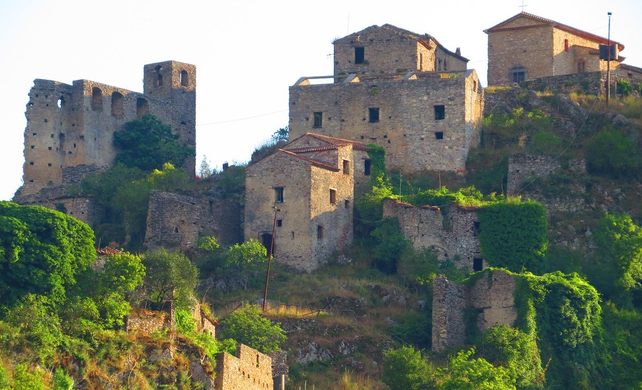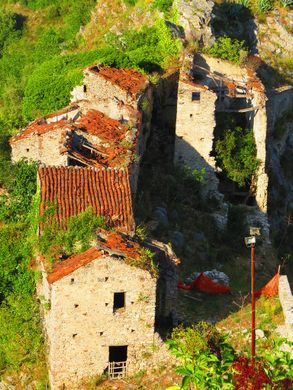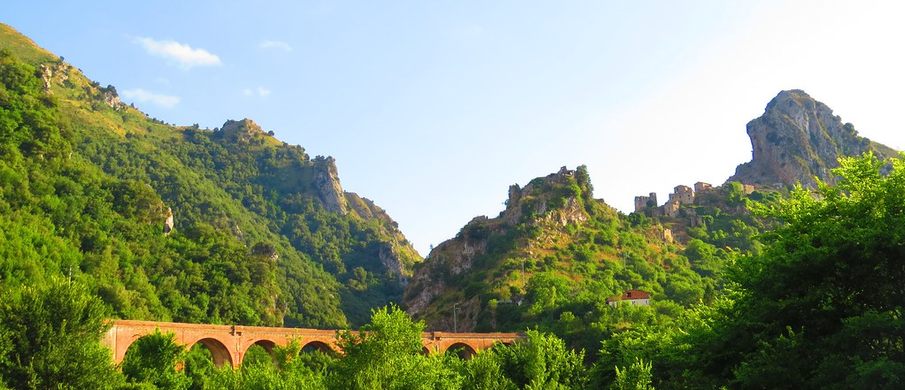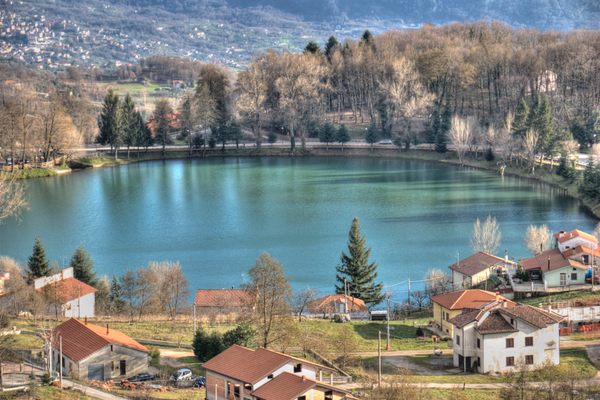San Severino di Centola
This medieval hilltop village was abandoned at the end of the 19th century, after existing for more than 500 years.
The ruins of the old village San Severino di Centola, originally San Severino di Camerota, are located on a rugged hill in southern Cilento, in the Italian region of Campania.
The village was founded during the 10th-11th centuries and was progressively abandoned as inhabitants chose to move their settlement closer to the newly developed railway in the valley below.
A pedestrian trail leads from the modern village of Centola to the ruins above. The village was strategically placed above the narrow gorges of the Mingardo river, known as Gola del Diavolo or “Devil’s Throat.” Among the ruins are medieval houses, churches, and a castle.
Initially while under the influence of the Lombard rulers of Salerno, the stronghold was governed by the Normans and the Swabians. The village later suffered significantly during the War of the Vespers and the war between the houses of Aragon and Anjou.
Under the house of Aragon, the fortified village was ruled by the Sanseverino family who were exiled to Spain during the 16th century. Its importance as a fortress decreased with the development of gunpowder. During the 17th century, the village was completely ravaged by a plague, and the main church was abandoned in the 1700s.
When the railway was constructed during the late 19th century, the last remaining villagers decided to abandon the ancient town.
Know Before You Go
Access to the site is free, but visitors can help the local association "Il Borgo" by leaving a donation at the start of the trail.



















Follow us on Twitter to get the latest on the world's hidden wonders.
Like us on Facebook to get the latest on the world's hidden wonders.
Follow us on Twitter Like us on Facebook